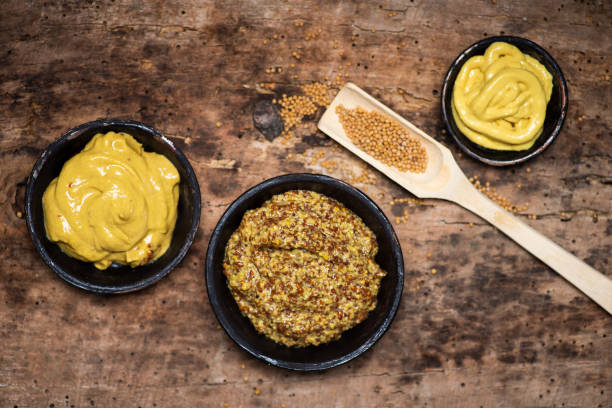Mustard, with its range of flavors from sweet to peppery, has garnered a place in kitchens worldwide. But how long does this culinary favorite last, and what are the signs of spoilage? Whether you’re wondering about mustard seeds, mustard sauce, or even homemade mustard, this article has you covered.
Mustard at a Glance
Mustard isn’t just a single product; it’s a whole category. Made primarily from mustard seeds, it can vary in flavor, texture, and color, depending on the ingredients used. For instance, English mustard is known for its paste-like texture and bright yellow hue, while French mustard may be dark-brown and crumbly.

What’s in Mustard?
Generally, mustard is a combination of dried mustard seeds, salt, and some liquid—often vinegar, white wine, or lemon juice. Varieties of mustard seeds, such as white, brown, and black, offer different flavors and textures, contributing to the array of mustards available on the market.
Is Mustard Gluten-Free?
Most mustard ingredients are naturally gluten-free, but cross-contamination can occur if it’s manufactured alongside gluten-containing products. Always read the label or consult the manufacturer to be certain.
Shelf Life of Mustard
| Type of Mustard | Pantry Shelf Life | Refrigerator Shelf Life |
| Dried ground mustard | 2 to 4 years | – |
| Dried whole mustard | 3 to 4 years | – |
| Commercial mustard sauce | 18 to 24 months | 1 year (once opened) |
| Homemade mustard | – | 1 week to 6 months |
The information above is an estimation, and actual shelf life can vary depending on storage conditions and preparation methods.
How to Store Mustard Properly
- American mustard: Unopened bottles can last 1-2 years past the ‘best-by’ date in a pantry. Once opened, they’re good for up to a year if stored in the fridge.
- Dijon mustard: This variety has a higher vinegar content and can be stored unopened at room temperature for 2-3 years. After opening, it lasts up to a year in the fridge.
- Homemade mustard: The longevity of homemade mustard varies by recipe. They can last anywhere from a week to several months when refrigerated.
Recognizing Spoiled Mustard
What to Look For
- Color: A change in color is a strong indication of spoilage. Mustard that’s become brown or excessively pale should be tossed.
- Odor: A sour or rotten smell means the mustard has gone bad.
- Texture: If stirring the mustard doesn’t restore its original texture, it’s time for a new bottle.
- Flavor: A sharp or overly acidic taste indicates spoilage.
- Mold: Any visible mold growth is a clear sign the mustard is no longer safe for consumption.
Frequently Asked Questions
Can Mustard Spoil If Not Refrigerated?
Yes, mustard can spoil if not properly stored. After the bottle is opened, it’s best to store it in the fridge, especially if you don’t use it frequently. Lower temperatures slow down the growth of mold and other bacteria, prolonging shelf life.
How Do You Know If Mustard Seeds Are Bad?
Old mustard seeds lose their potency over time. If they lack their characteristic spicy kick, it’s time for a new batch. Clumping and mold are also signs that they should be discarded.
What Happens If You Consume Expired Mustard?
While consuming slightly expired mustard may not result in immediate illness, eating spoiled mustard can pose health risks, including food poisoning.
Conclusion
Mustard is a versatile and widely used condiment with various types and flavors. Knowing how to properly store it and recognize the signs of spoilage can help you make the most of this kitchen staple. So, the next time you rediscover that old bottle of mustard in the back of your fridge, you’ll know exactly what to do.

Editorial Staff
Our writers, editors, content managers, and SEO specialist. We all take part in crafting amazing articles. We spend hours ensuring that each article is based on facts, researched, and thorough. You'll never want to click the back button to look for more answers other than here!
